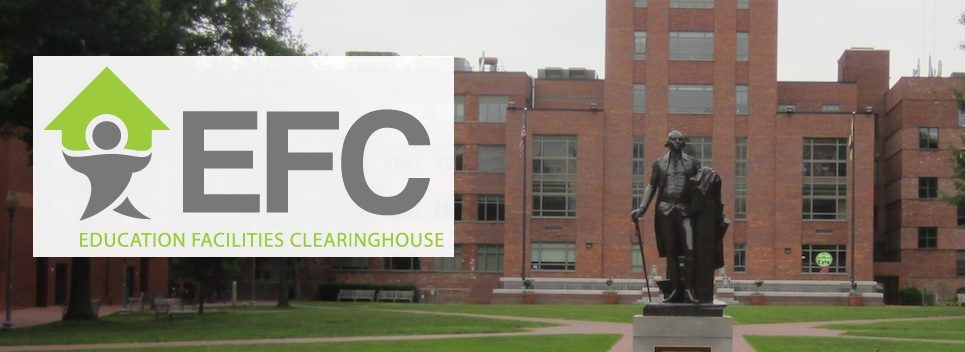By Allen Rathey and Gene Woodard
Gene Woodard, Director of the Building Services Department at the University of Washington (UW), believes in his staff of 249 custodians, and it shows in his shared leadership style. His department has deployed 23 “Natural Work Teams” —each natural work team is supported by managers and supervisors—to provide continuously improving green cleaning to more than 11 million square feet of the main Seattle campus.
Two years ago, Building Services began launching three to four of these natural work teams each quarter. The intent was to engage the frontline workers in a systematic process that encourages them to generate ideas that make the work more efficient. The most effective solutions come from the people that are actually doing the work. The natural work teams have established goals aligned with the department’s strategic objectives.
Separate project teams with representatives from across the campus tackle areas such as optimal cart design, best practices for white board cleaning, stairwell safety, and hiring. Project based teams strive to achieve their set goals, usually within 90 days. The department’s efforts to fine-tune efficiency have helped to counterbalance the 26% cumulative budget cut the department endured from 2007 through 2010.
Principle-Focused Leadership
Woodard, who has 30 years of experience at UW, and his Building Services leadership team are strong proponents of the “lean” Shingo Model (Shingo Institute, 2015) based on “cultural enablers” and other factors that foster organizational effectiveness, including:
- Leading with Humility
- Respecting Every Individual
- Creating Constancy of Purpose
These leadership principles guide the decisions and actions of Woodard and his team.
Learning and Maturing
Woodard freely admits UW is just beyond the embryonic stage in developing this new culture. “We are infants striving to grow in a systematic way to foster engagement and continuous process improvement, while eliminating wasteful activities and improving the work.”
“Improving the work is the work,” Woodard adds. “It’s an ongoing process requiring the leaders and team members to continuously learn and mature in its application. It is a rewarding leadership style that relinquishes power to the teams and promotes mutual engagement around a common strategy.” Woodard explains, “We focus on being strategic, standardizing best practices, and not just putting out fires.”
Mission and Facilities Services Framework
The UW Building Services Department’s Mission Statement is: “We provide cleaning and waste reduction services through innovation and dedication.” Their Vision Statement is: “A highly engaged organization promoting a clean, healthy and sustainable community.”
A Facilities Services Framework creates focus in four main areas:
- Delivering Results at the Top
- Enabling Actions
- Guiding Principles
- Foundational Values
Woodard and his departmental leadership team—Scott Spencer, Sattia Sear, and Emily Newcomer—set strategic objectives and use a balanced scorecard to track progress using green, yellow, and red icons for visual accountability, with the ultimate aim to reach the Shingo Bronze Level (Shingo Institute, 2015). Woodard acknowledges it may take years to achieve this goal.
Coaching and Support
Supporting teams through constancy of follow-up is central to the work of the leadership team. The four department leaders strive to each visit four teams a week (16 of 23 teams per week is the goal).
Woodard, his department leaders, and natural work teams also receive regular coaching from Mike Martyn the founder of SISU Consulting Group as well as Mark McKenzie, Finance and Facilities Lean Program Manager Woodard emphasizes, “Building leaders and coaches—supporting, guiding and assessing teams, while also being guided and coached—is key to our program.”
Enduring, Diverse Workforce
Woodard speaks proudly of his workforce, citing:
- More than half of the Building Services’ team members have been at UW for more than 15 years.
- 10 of the 17 departmental leaders were promoted from within.
- Staff is comprised of 18 nationalities.
- There are nearly equal numbers of male and female workers.
It’s Working
UW’s Building Services teams have been recognized nationally for their stand-out green cleaning program by earning the Green Cleaning Award for Schools & Universities Grand Award for Higher Education in 2007, the Co-Grand Award in 2010, and the Grand Award for Higher Education in 2014 (American School & University, 2015). The momentum has not let up. Over the last 12 months, Woodard’s teams have generated 669 ideas and have implemented 362 new ideas for continued improvement of cleaning processes at UW. Six to eight more natural work teams will launch in January 2016.
References
American School & University. (2015). Green Cleaning Award for Schools & Universities. Retrieved from http://asumag.com/green-cleaning-award
Shingo Institute. (2015). Retrieved from http://shingo.org
Shingo Institute. (2015). Shingo Institute Recognition. Retrieved from http://shingo.org/challengefortheprize.html
Allen Rathey is President of the Healthy Facilities Institute (HFI) and Executive Director of the 501c3 Process Cleaning for Healthy Schools (PC4HS). Call him at 208-724-1508.
Gene Woodard has been part of the University of Washington for 30 years and serves as Director of the Building Services Department (BSD), which manages the Custodial Services and UW Recycling. He is a (Master) Registered Executive Housekeeper and member of the International Executive Housekeeping Association (IEHA). He served as IEHA President from 2000—2002. Gene is a 2012 recipient of IEHA’s William D. Joyner Achievement Award and a contributing writer for Executive Housekeeping Today. He serves on the board of the Healthy Facilities Institute (HFI) and is a member of the Green School Leadership Council with the Healthy School Campaign. Gene is also a speaker on custodial operations and leadership topics.

